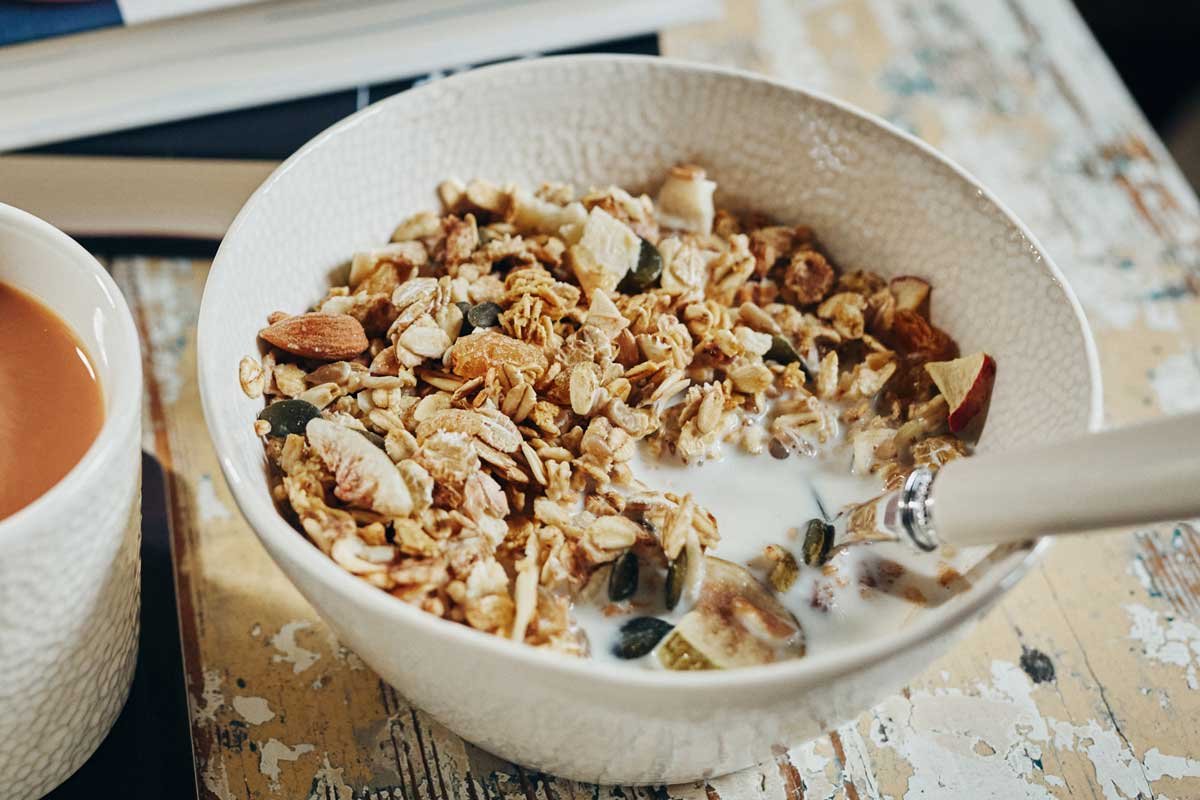Feeling good: The important role that fibre plays in your mental health
We are delighted to be here again, talking about one of our favourite topics and reminding you that it is entirely possible to feel fabulous through the power of food. This month marks Digestive Health Month, so we’re even more enthusiastic about how a nutritious diet can make you feel a whole lot better. Let’s waste no time and dive right into understanding more about the important role the digestive system plays when it comes to our physical and mental health.
Most of us are aware that digesting more fibre can have us spending more than just a penny, but the role the digestive system plays in our mental health is a little less understood.
So, what are the primary functions of the digestive system? Digestion and absorption. We digest food by breaking it town into small molecules which then get absorbed into the body.
How does a healthy digestive system contribute to our mental health?
A ‘gut feeling’ didn’t become a saying without good reason. The gut is physically connected to the brain through millions of nerves, and with this in mind it should come as no surprise that treating it well will improve our mood and make us happier people.
Some of the bacteria that we digest helps to produce neurotransmitters – the bodies chemical messengers, that transmit messages between our neurons and to our muscles. These chemicals have a major impact on our mental health. Serotonin is an example of an antidepressant neurotransmitter that’s mostly made in the gut.
Dr Siri Carpenter explains this link further:
“Research has found that tweaking the balance between beneficial and disease-causing bacteria in an animal’s gut can alter its brain chemistry and lead it to become either more bold or more anxious.
“The brain can also exert a powerful influence on gut bacteria; as many studies have shown, even mild stress can tip the microbial balance in the gut, making the host more vulnerable to infectious disease and triggering a cascade of molecular reactions that feed back to the central nervous system.”
This conveniently leads us onto our next guest, the microbiome…
Meet the microbiome.
The University of Washington define the microbiome as a “the genetic material of all the microbes – bacteria, fungi, protozoa and viruses – that live on and inside the human body”. But it’s so much more than that.
How we treat and nurture our microbiome directly impacts our ability to control our immune health and our brain health. So, what do we do? We show it a good time!
Adding probiotics and prebiotic-rich foods is the key to success. These foods can help to provide a balance of good bacteria and diversity into the microbiome.
Probiotic rich foods include apple cider vinegar, pickles, mozzarella and yogurt (perfectly paired with our granola of course). If you want another reason to add probiotic foods to your diet, Healthline reported a favourable link between certain probiotics with improved symptoms of depression and other mental health disorders.
And we mustn’t leave out prebiotics. To get your dose of prebiotic foods, we advise eating plenty of asparagus, onions, garlic, and leeks – maybe followed up by a mint or two.
Fibre should be a key part of your diet
You only have to take a look at our wide range of high fibre cereals to learn that we are passionate about high-fibre diets. And there’s good reason behind it.
Fibre is associated with good gut health and brain health. But that’s not all, fibre also helps to lower the risk of heart and circulatory disease, type 2 diabetes and some cancers.
In fact, The Journal of Nutrition found dietary fibre intake helped to promote both achieving a healthy weight and lifestyle. Fibre helps us to keep on track when choosing healthy and nutritious foods, by keeping blood sugar levels in check and preventing us reach for high sugar, high fat foods. This means a healthy weight can be sustained.
Unfortunately, most people in the UK are not eating enough fibre – but there’s no time like the present to increase your intake! We ought to be eating around 30g of fibre a day to keep our bodies and mind in tip-top condition. Good sources of fibre include vegetables, legumes, fruits, cereals and nuts and seeds.
What else can you do to improve your digestive health?
Well, you can start by reading our digestive health guide – and then ease yourself into a parasympathetic state.
What’s a parasympathetic state we hear you ask? We are about to explain.
The parasympathetic state is essentially a ‘rest and digest’ state, which can be achieved through meditation, yoga, exercise and regular sleep. This state is obviously good for our mental health, but it also helps our digestive system to perform particularly well too. This zone of perfect calm allows our bodies to produce those wonderful gastric juices that help us to properly absorb our food. Without these juices, we wouldn’t be able to absorb the nutrients, vitamins, and minerals needed to support a healthy body and brain.
Our minds and bodies are more interconnected than you may think. So, don’t neglect fibre and other foods that promote digestive health, because it’s not just your body that’s losing out – it’s your mind too.
And there’s nothing more we want at Lizi’s than happy people that feel a whole lot better, so tuck into some Digestive Health Granola and give yourself something to smile about.


